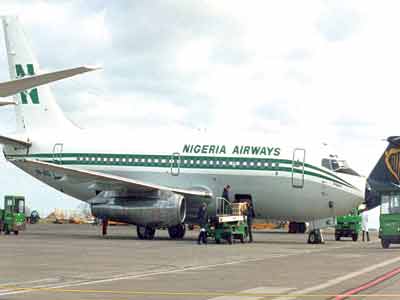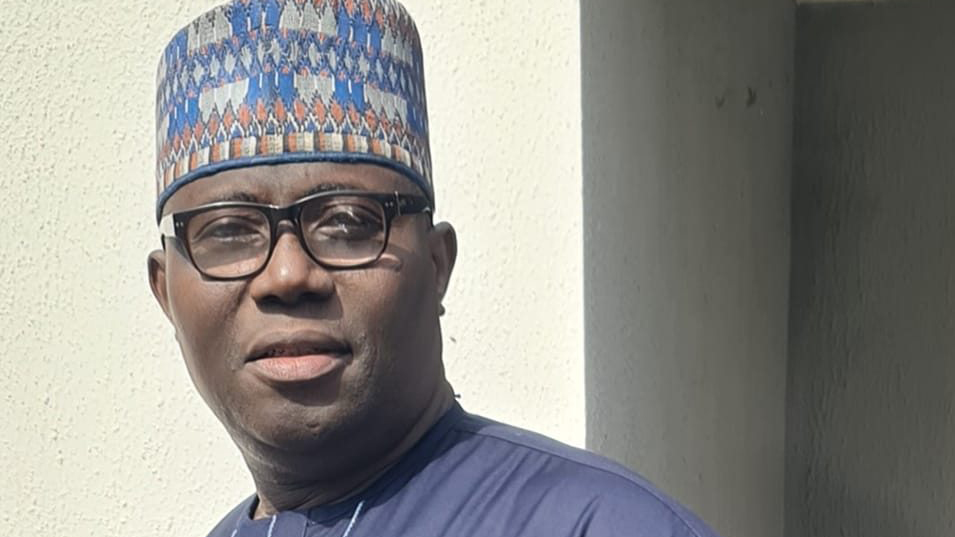
Chairman of the Airline Operators of Nigeria (AON), Captain Nogie Meggison, in this interview with WOLE OYEBADE, calls for a review of policies and operating environment to revive the industry and the economy at large. Excerpts:
There is general apprehension about the aviation sector at this time. What are your fears as an operator?
First of all, I’m a pilot, an aviator, CEO of an airline, chairman of Nigerian Airlines Association and patron of the unemployed pilots’ union. When you see Nigerians out of jobs like today and standing on the roadside, it gives you cause for concern. Or when you sit in front of a television set or read in a newspaper to see any part of the economy going through hardship and at the brink of collapse, it will raise your antenna, as a Nigerian that wants things to work. Unfortunately, aviation is part of the country and Nigeria, as declared by the Minister of Finance; we are now officially in recession.
The issue for recession is not the recession itself, but how you want to come out of it, so that you can be a Victor at the end of the day. How do you want to get out of the recession as soon as possible? That is the question we should be talking about. And how do you manage the economy and the sector during this time of recession so that it does not blow out and completely collapse the system. Will Nigeria recover again? I will say yes. But how deep do we want to go down before we recover and how fast do we want come out of this mess?
How will you rate the effects of recession on domestic operations?
Today, a couple of airlines have suspended operations. Those doing scheduled flights are what you see. Those that support the scheduled flights and get things running, like the oil sector, are also collapsing, but because they are not on scheduled flight operations, you tend not to see them and panic.
We’ve had case of Caverton Helicopters dropping 50 per cent of their staff. Then Bristow helicopters. Executive Jet also cut their own and Topbrass Aviation. There are other things behind the scene that jumpstart the economy that are going through their own beating. Yes also, the scheduled airlines are in the forefront of what we see everyday. Two domestic airlines suspended operations and everybody is screaming. But there is more behind the scene that led to them suspending operations. Yes, it is a big cause for concern because they employ a lot of people. We as a country must look at it critically.
How critical is the aviation sector really?
Aviation is a yardstick or barometer for any economy in the world, be it Nigeria, United States, China or Japan. But the government needs to come up with policies, with purpose and vision to get out of the woods. We believe in the present administration and the minister who is an aviator. We look up to them because they are in the driver’s seat to navigate us through this dangerous terrain that we are at the periphery of a collapse. We are all Nigerians and hope that something will be done.
No airline is today operating at optimum; everyone is down to about 50 to 60 per cent capacity. But it is not just aviation. The Central Bank Governor some days ago said that the economy has shrunk by 50 per cent. Those airlines that have gone out came from 60 per cent and down to five per cent; hence they had to suspend operations. Everybody is working at a very tight margin. The government has actually shown clean hands. They have given us duty-free on spare parts and listening ears, but there is a whole lot more that still needed to be done.
But the duty-free policy is still not implemented.
We remain grateful to the government because the case went all the way to the Presidency to see reasons and jumpstart the economy. Our minister also led us from table to table on this matter. Trickling down to the customs, it has taken time for them to understand and to implement it. A lot of things are now being put in place, as I understand.
Even as of yesterday, I still had to go to the warehouse to sit down with them. The area comptroller in Lagos is aware but his boys on the ground are not aware and not too clear. He is telling them that ‘this is free, let them go’. We are ironing out the rough edges because it is not automatic.
One of the issues is that the current administration is anti-corruption, so everyone is trying to be a little rigid on the table. We are working hard to ensure the cleanup within custom and sharpen the rough edges. It is not that they are not letting us take the parts out but instead of one-day process, it is now taking three days with arguing and writing letters up and down. We need to iron out those things.
Aircraft parts are on Aircraft On Ground (AOG) basis; you don’t buy them for keeps. Because an engine of some aircraft can cost you $15m. The engines don’t belong to you, you lease them and you are on a warranty programme. When one spoils, they take it and give you a new one. No engine is less than $2million and so for such to be sitting down for a day means problem.
What do you want to see policy-wise for aviation and the economy at large?
I’ll like to speak as a Nigerian, and not an aviator at this time, because the whole country is going through nightmare. The fundamentals to make Nigeria great still exist. It is not difficult to see. Our potentials and fabric still stand strong.
One, we are still the happiest people in the world. Two, we have 180 million population out of which the World Bank and UNICEF have said that 65 per cent of this people are youths of 27years below. We are talking about able young men and women with education.
Three, our geographical position put us at the trigger point in Africa. No Nigeria, no trigger. With our position, we are almost at the centre of the world and about four and the half hours from everywhere. We are the pivot and the balance. The country that has about 65 per cent of West Africa is Nigeria. We as a country have not started scratching any of our resources. Oil yes, it is big but our gas reserve is three times of our oil. We just need to sit down and bring out a road map.
Talking about aviation, which is my specialty, people wait on Nigeria to supply them. When Nigeria coughs, their balance book, their airlines and GDP all shake. African Development Bank said this three years ago, the capital flight of $10billion goes out of Africa yearly, with 60 per cent coming from Nigeria.
We are fighting on. Today, as airlines, we are buying dollar at N420, if we can find. We are buying fuel at N220 per litre, if it is from Lagos, or about N260 if from Abuja. What is the difference you are seen on our ticket prices? None. We are moving on and wobbling through. We believe in the government and we will keep assisting them. Because we know that one of the catalysts to bring out a country out of recession are mobility, logistics and the airline industry.
Look at Asaba, for instance, I got the land for Asaba airport and I started the feasibility study, put the runway and so on. When I started, Asaba was in the middle of nowhere. It was bush. If you go there today, Asaba has almost taken over the GRA of Onitsha because of the airport.
To show the importance of aviation, a 100km from Lagos can at best take you to Ibadan or to Ijebu Ode. But one kilometre of runway will take you anywhere in the world that aeroplane can go. So, you need aviation. It is not debatable. It is a catalyst for the growth of any economy and the recovery at this time.
We must use aviation as the template for recovery with a strong, clear policy of what we want to achieve at the end of the day and with a time frame. Because, it is not what you belief or assume that comes our right, but what you measure that becomes the real thing.
You can have an illusion, hallucination and assume, but when you project, measure and put them right, then that is what comes out right. Our neighbour, Ghana with two airports, is planning to be the hub of West Africa with one airport. In case there is a diversion, the airline is going to the next country. We as a country with 28 airports are watching.
In Lagos, if you want to divert as an international within 200nautical miles in Nigeria, you can sit down and do that closing your eyes to almost 16 airports. And in case of an emergency, you can put the aircraft in any of the 28 airports of 3000 metres apart. How many countries can boast of that in West Africa. So, it is for us to wake up. Ghana does not have oil, they are importing like us. Today, Ghana sells Jet A1 at N110. We are selling Jet-A1 to ourselves at N260. We are all going to the same market importing. The distance between Ghana and Abidjan or Dubai from where they import, is the same thing. So, why the difference?
Your members have argued that government taxes and charges are killing the industry.
Multi-taxation is something that is happening in the system and didn’t just start today. With what is going on today and everyone sharpening their pencils, the effect is what we are seeing with airlines shutting down operations. You keep on tightening the screws without applying logic or facing reality and being transparent. Then, you will end up with an aviation without the airlines. Yet, there is no aviation without the airlines.
You must treat your customers well and don’t throw astronomical, phantom bills that don’t exist to weep up sentiments. Let’s face issues. You cannot say aviation owes you N40b and when we look down to it, you cut it to N18b and the next day, you say it is N8b. Even when we look at the N8b, 80 per cent of that bill is airlines that don’t exist anymore and because of the same hostility that has made those airlines shut down. As professional, to make Nigeria work, one has to be very diplomatic in our approaches to conduct business. Multiple taxation and accountability must be clean and clear for us to succeed as airlines and as aviation country.






